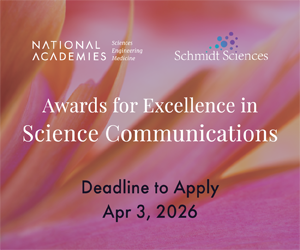By Sandra McLean
As analytical techniques become increasingly sensitive, scientists understand more about environmental chemicals than ever before. And as researchers peer more closely at the effects of pollutants on the lives of their subjects, ethical concerns have arisen, speakers observed on Feb. 20 at the 2011 AAAS meeting in Washington, D.C.
Today, pollutants in dust, air, blood, tissues, breast milk and urine are often measured in parts per trillion. Instead of smoke stacks, waste pipes, and dumpsites, researchers are looking into homes. Pollution has become personal.
“Increasingly, environmental health researchers are focusing on toys, beauty products, food packaging, cleaners, and furniture,” said Julia Brody of the Silent Spring Institute in Newton, Massachusetts. These are sources of endocrine-disrupting chemicals such as phthalates, alkyl-phenols, polychlorinated biphenyls (PCBs), and flame-retardant compounds.
Precise analytical tools now force researchers to question whether to share individual results with subjects who have given blood or urine for analysis. “Should the individual participant have the right to their own results, their body burden, and what is in their homes? Or might this information be harmful to them in some way by increasing worry?” asked Brody.
Historically, researchers have followed the example of medical doctors. If the doctor felt that sharing information would be an emotional burden, they withheld it. Using this model, researchers generally release results by category, such as age, race, gender. Study data are published in professional journals available to other researchers without personal identification.
“We ask quite a bit of subjects when we ask them to participate in environmental health studies. The researchers take bio-specimens, spend three to four hours in someone’s house, wipe down and vacuum for dust, and ask hundreds of questions about exposures over their lifespan,” explained Gwen Collman of the National Institute of Environmental Health Sciences.
Subjects cooperate in studies to improve the scientific knowledge base, but they are also concerned about their personal exposure.
“When will I get my results?” was a frequent question during a recent “Chemical in our Bodies” research project in California, said public health researcher Rachel Morello-Frosch of the University of California, Berkeley.
“Their focus was on the benefits of knowing, so we developed a protocol, an hour-long interview and a two-page results letter, to inform participants of their bio-monitoring results,” Morello-Frosch said. “People really appreciate getting their results, and they appreciate honesty about scientific uncertainty.”
According to Brody, researchers don’t always know how to interpret the results in terms of their implications for human health.
“We pick new target compounds for study, because studies in animals or cells show the potential for harmful health effects,” she said. “In the lab, they might cause cancer in animals or damage DNA or mimic hormones.” Explaining a test result to a study participant sometimes means saying, “We don’t know the safe level for humans.”
Brody’s research team was part of the Breast Cancer and Environment Study on Cape Cod, Massachusetts. The scientists took air and dust samples in 120 homes to test for 89 endocrine-disrupting compounds. The women in each home also gave urine samples.
“In understanding environmental health issues in the modern world, people clearly want to get their results. Participants were focused on potential benefits of learning what [pollutants] were in their homes,” said Brody. After working with the researchers, participants said they felt increased trust in the research process and pride in contributing to science and to their community.
As scientists develop and carry out personal exposure research projects, they must plan for changing expectations and participants asserting their right-to-know. Brody suggested that scientists work from the premise that data belong jointly to participants and researchers.
Sandra McLean is a graduating senior in the science communication journalism program at the University of Tennessee, Knoxville. She is pursuing a career in health and science writing. Reach her at sandramclean@nasw.org.


